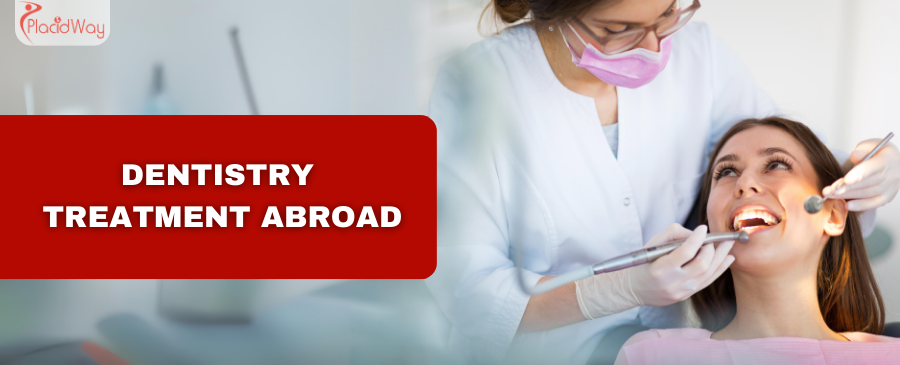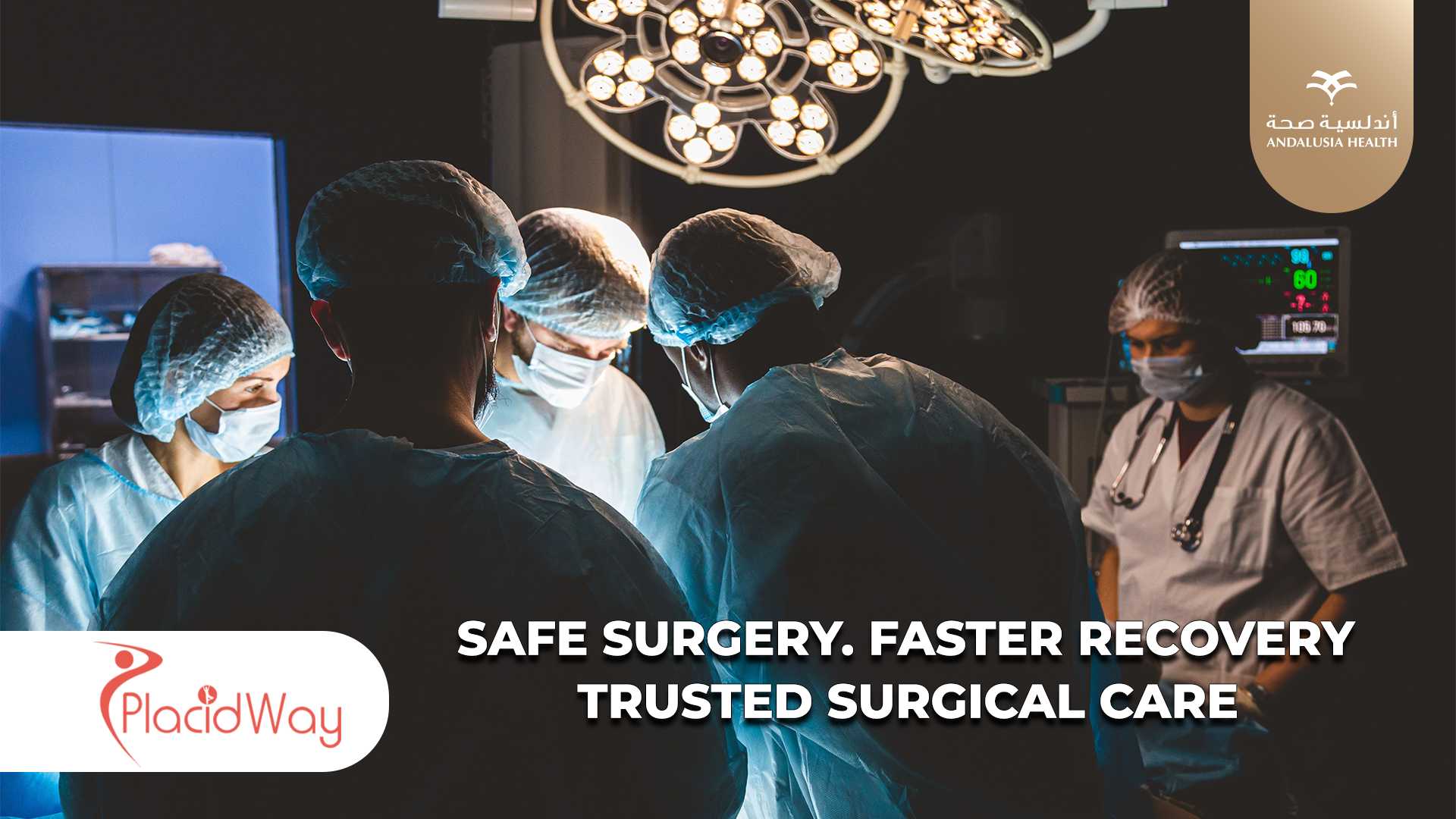
Your Ultimate Guide to a Perfect Smile with Dental Tourism
Is the high cost of dental care making you put off that much-needed procedure? You're not alone. For many, essential treatments like dental implants, crowns, or a full smile makeover seem financially out of reach. But what if you could get world-class dental work done by a top-rated specialist for 50-70% less than what you’d pay at home? Welcome to the world of dental tourism.
Dental tourism is the practice of traveling to another country for dental treatment. It’s a simple solution to a major problem: accessing premium dental care without draining your savings. Every year, millions of people pack their bags for destinations like Mexico, Turkey, Costa Rica, and Thailand, not just for a vacation, but for a chance to restore their smile and confidence. They receive care from internationally accredited dentists in state-of-the-art facilities, all while saving a significant amount of money—enough to cover their travel expenses and still come home with extra cash.
This guide will walk you through everything you need to know, from the most popular procedures and best countries to finding a qualified dentist and planning your trip seamlessly. Let's explore how you can achieve your dream smile for a fraction of the cost.
Why Is Dental Work So Much Cheaper Abroad?
The first question most people ask is, "Is the quality lower?" It's a valid concern, but the price difference rarely has to do with the quality of care. The key factor is the cost of living in the destination country. A dentist in Thailand or Mexico has significantly lower operational expenses compared to a dentist in the US or UK. This includes everything from rent for their clinic and staff wages to insurance costs and lab fees.
Furthermore, the cost of dental education is often subsidized by the government in many countries, so dentists graduate with less student debt. This allows them to charge more reasonable prices for their services. These savings are passed directly to you, the patient. Many international clinics use the exact same high-quality materials, brands (like Nobel Biocare or Straumann for implants), and advanced technology (like CAD/CAM and 3D imaging) as clinics in your home country.
What Are the Most Popular Dental Procedures for Medical Tourists?
While you can travel for any dental procedure, patients typically seek treatments that offer the highest savings. These are often complex, multi-stage procedures. Here's a breakdown of the common types:
- Cosmetic Dentistry: This is all about improving the appearance of your smile.
- Porcelain Veneers: Thin shells placed over the front of teeth to correct discoloration, chips, or gaps. Getting a full set can be incredibly expensive at home, making it a top choice for dental tourists.
- Teeth Whitening: Professional laser whitening can be done quickly and affordably abroad.
- Restorative Dentistry: This focuses on repairing or replacing damaged or missing teeth.
- Dental Implants: The gold standard for replacing missing teeth. This includes single implants, multiple implants, and full-arch solutions like the All-on-4® treatment concept, which replaces an entire set of teeth with just four implants. The savings on these procedures can be in the tens of thousands.
- Dental Crowns & Bridges: Crowns cap a damaged tooth, while bridges "bridge" the gap created by one or more missing teeth. High-quality materials like Zirconia are much more affordable overseas.
- Root Canals: A procedure to save a badly infected tooth, which can also be significantly cheaper.
- General & Major Dentistry:
- Full Mouth Reconstruction: A comprehensive plan that combines multiple cosmetic and restorative procedures to completely rebuild a patient's smile. This offers the most substantial savings of all.
Which Country Offers the Best Dental Tourism Experience?
Several countries have carved out a reputation for excellence in dental tourism. Your ideal choice may depend on your proximity, budget, and travel preferences.
- Mexico: A top choice for North Americans, especially in border towns like Tijuana and Los Algodones (dubbed "Molar City"). It offers incredible value, high standards of care, and convenience.
- Turkey: Known as a hub for cosmetic procedures, Istanbul and Antalya are famous for "smile makeovers" with veneers and implants. It’s a favorite for patients from the UK, Europe, and the Middle East.
- Thailand: The "Land of Smiles" lives up to its name with world-class hospitals and dental centers in Bangkok and Phuket. It combines top-tier care with an unforgettable vacation experience.
- Costa Rica: A prime destination for Americans seeking high-quality restorative work in a beautiful, natural setting. Known for its highly trained specialists and personalized care.
- Hungary: Often called the "Dental Capital of Europe," it attracts patients from across the continent for its affordable, high-quality treatments, particularly in Budapest.
How Can I Be Sure a Dentist Abroad is Safe and Qualified?
This is one of the most critical steps. Vetting a dentist from thousands of miles away can seem daunting, but there are clear markers of quality and safety. First, look for international accreditations. Certifications from bodies like the Joint Commission International (JCI) or the International Organization for Standardization (ISO) mean the clinic adheres to the highest global standards.
Next, dive into the dentist’s credentials. Where did they study? Do they have specializations, particularly for the procedure you need? Many top international dentists trained in the US, UK, or Germany. Finally, read patient testimonials and reviews. Look for before-and-after photos and detailed accounts of patient experiences. Platforms that connect patients with clinics, like PlacidWay, often pre-vet their partners, adding an extra layer of security and trust to your decision-making process.
What Does the Dental Tourism Process Look Like from Start to Finish?
The journey is more straightforward than you might think. It typically follows these steps:
- Initial Research & Consultation: You'll start by researching clinics and sending your dental records (like X-rays) for an online consultation.
- Receive a Treatment Plan: The clinic will send back a detailed treatment plan, including the procedures, timeline, and a comprehensive cost estimate.
- Book Your Trip: Once you approve the plan, you'll schedule your appointments and book your flights and accommodation. Many clinics offer assistance with travel logistics.
- Arrival & Final Consultation: Upon arrival, you'll have an in-person consultation and examination before the treatment begins.
- Undergo Treatment: Your dental work will be performed over one or more visits, depending on the complexity.
- Recovery & Departure: After a short recovery period and a final check-up, you'll be cleared to fly home.
Am I a Good Candidate for Dental Implants?
Dental implants are a fantastic long-term solution, but they aren't for everyone. The ideal candidate should have:
- Good General Health: Uncontrolled chronic conditions like diabetes or heart disease can affect healing.
- Healthy Gums: You must be free of periodontal (gum) disease.
- Adequate Jawbone: There needs to be enough bone to anchor the implant. If not, a bone graft procedure may be necessary first, which can also be done abroad.
- Commitment to Oral Hygiene: You must be diligent about brushing, flossing, and regular check-ups to ensure the implant's longevity.
Smokers are generally advised to quit before the procedure, as smoking significantly hinders the healing process and increases the risk of implant failure. An online consultation with your chosen dentist can determine your eligibility.
How Much Can I Really Save on Dental Work Overseas?
The savings are substantial, especially for procedures that are not typically covered by insurance. The table below gives you an idea of the cost differences for popular treatments across various countries. Please note these are average estimates and can vary based on the clinic and specific material used.
| Procedure | USA Cost (USD) | Mexico Cost (USD) | Turkey Cost (USD) | Thailand Cost (USD) |
|---|---|---|---|---|
| Dental Implant (Single Titanium) | $3,000 - $4,500 | $900 - $1,500 | $600 - $1,200 | $1,000 - $1,800 |
| All-on-4® treatment concept (per arch) | $20,000 - $30,000 | $8,000 - $12,000 | $7,000 - $11,000 | $9,000 - $14,000 |
| Porcelain Veneer (per tooth) | $1,000 - $2,500 | $350 - $550 | $250 - $450 | $300 - $600 |
| Zirconia Crown | $1,500 - $2,500 | $400 - $600 | $200 - $400 | $350 - $550 |
What are the Telltale Signs That I Might Need a Root Canal?
A root canal is needed when the pulp inside your tooth becomes infected or inflamed. Ignoring the signs can lead to an abscess or even tooth loss. Be on the lookout for these common symptoms:
- Persistent Pain: A constant, severe toothache that may radiate to your jaw, face, or other teeth.
- Sensitivity to Temperature: Pain that lingers for more than a few seconds after consuming hot or cold foods or drinks.
- Pain with Pressure: Sharp pain when you bite down or touch the tooth.
- Swollen Gums: The gums around the tooth may be swollen, tender, or have a small, persistent pimple (abscess).
- Tooth Discoloration: An infection can cause the tooth to darken and appear grayish-black.
If you experience any of these, it's crucial to see a dentist. Getting a root canal abroad can save you a significant amount on a procedure that is vital for your oral health.
Are There Any Risks or Downsides to Dental Tourism?
While dental tourism is overwhelmingly successful for millions, it's wise to be aware of potential challenges. The primary risks include language barriers, which can lead to miscommunication. However, most top international clinics have English-speaking staff. Another concern is follow-up care. What happens if you have a problem after returning home? It's important to discuss this with the clinic beforehand.
You can mitigate nearly all risks by doing thorough research. Choose a clinic with a long track record of treating international patients, ask about their warranties or guarantees on dental work, and clarify the plan for any necessary follow-up care. Working with a reputable agency can help you navigate these potential issues with confidence.
How Is Follow-Up Care Handled After I Return Home?
This is a common and important question. Most post-procedure care is straightforward and can be handled by your local dentist. Before you leave the destination country, your international dentist will provide you with a complete file of your treatment, including X-rays, procedures performed, and materials used. You can share this with your dentist at home for routine check-ups and cleanings.
For more complex procedures like implants, many top-tier international clinics offer a warranty. If a complication arises that is covered under the warranty (e.g., a faulty crown or a failing implant), the clinic may cover the cost of a return trip or work with a partner dentist in your home country. Always clarify the warranty policy before committing to treatment.
Take the Next Step with PlacidWay
Ready to achieve your dream smile at a price you can afford? Your journey to a healthier, more confident you is just a click away. Explore top-rated international dental clinics, compare prices, and get a free, personalized quote for your dental procedure with PlacidWay. Let us help you plan a seamless and transformative medical travel experience. Start your journey today!





.png)
.png)
.png)
.png)

Share this listing